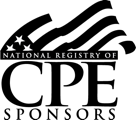Introduction to Derivatives and Hedge Accounting
After completing this course, the learner should be able to:
- Recall an overview of the types and elements of derivatives
- Define hedge accounting and requirements for the application to be eligible
- Identify common hedges of financial assets and liabilities
- Recall the impact of discontinuing hedge accounting
- Recognize simplified hedge accounting available to nonpublic business entities

Instructor bio
Jennifer F. Louis, CPA, has over 25 years of experience in designing and instructing high quality training programs in a wide variety of technical and “soft skills” topics needed for professional and organization success. In 2003, she founded Emergent Solutions Group, LLC, where she focuses her energy on designing and delivering practical and engaging accounting and auditing training. She was most recently Director of Audit Product Development at Surgent Professional Education, and prior to that served as Executive Vice President/Director of Training Services at AuditWatch, Inc. Jennifer started her career in Audit for Deloitte & Touche LLP. Jennifer graduated summa cum laude from Marymount University with a B.B.A.-Accounting.
A Becker Professional Education is registered with the National Association of State Boards of Accountancy (NASBA) as a sponsor of continuing professional education on the National Registry of CPE Sponsors. State boards of accountancy have final authority on the acceptance of individual courses for CPE credit. Complaints regarding registered sponsors may be submitted to the National Registry of CPE Sponsors through its website: www.nasbaregistry.org
Becker Professional Education Sponsor I.D. Numbers NASBA: 107294, New York: 002087, New Jersey: 20CE00226700, Texas: 009580, Ohio: CPE.186, Illinois 158.002405, Pennsylvania: PX177823

